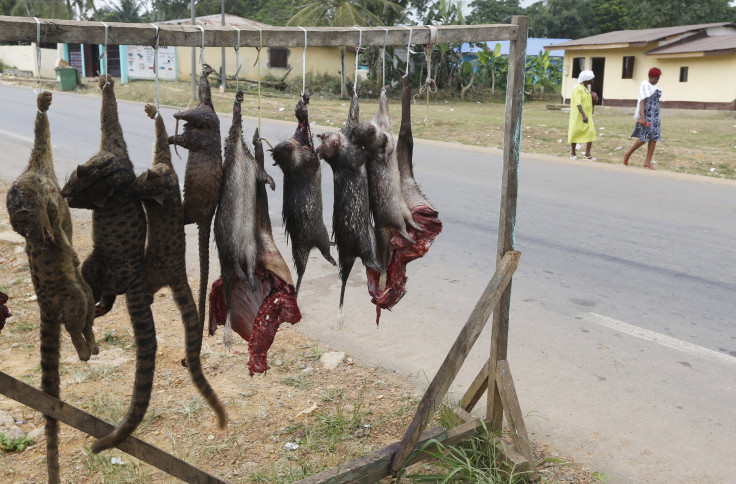Bushmeat In Urban Households, A Threat To Amazon Wildlife

Forests and shrubs in Africa are referred as bush, and the meat of wildlife of the forest is therefore called as bushmeat. The forests of Central Africa shelters about 24 million people and of which 40-60 percent of the population are city or town dwellers. These urban households feed on elephant, chimpanzee, gorilla and other primates, forest antelope, porcupine, monitor lizard, bush pig, cane rat, pangolin, guinea fowl and others, and these are the primary protein source of the natives, reports Bushmeat Crisis Task Force of the US.
About 1 million metric tons of wildlife is killed by people in Central Africa for food every year, said the report. Years of continuous hunting have depleted the wildlife of the Western Africa, and therefore,meat of ungulates and primates are replaced by the meat of rodents for food.
Feeding on bushmeat will lead to the loss of predators like leopards, golden cats and large snakes as well as seed dispersing animals. The depletion of the wildlife is directly related to the loss of variety of plant species due to the absence of seed-dispersing animals. Depletion of the forest cause irreversible ecological effects with global consequences, warns the report.
The wildlife of Central and Western Africa are not as productive as savannah-based wildlife, and the increase in the human population of Africa is an alarming threat to these Amazonian forests. Hunting and trading of bushmeat is considered as a profitable business in these areas than raising and trading cattle, chicken, goats, pigs and ducks.
These farm animals are much valued as savings and insurance and not as the primary source of protein in their diet. There were no laws or enforcements in the country relating to the bushmeat crisis until the late 1990s, but the private sector, NGOs and governments are taking rigorous initiative to address this crisis for the past two decades now, says the report.
To report problems or to leave feedback about this article, e-mail: saranya@ibtimes.com.au





















